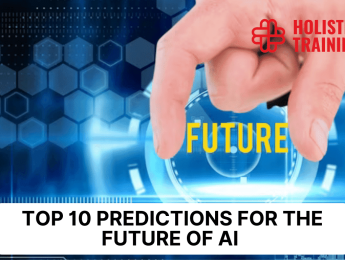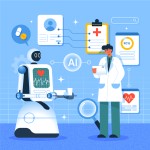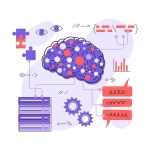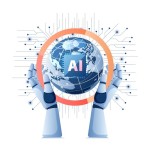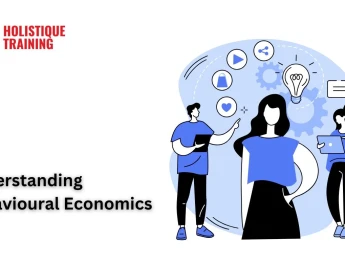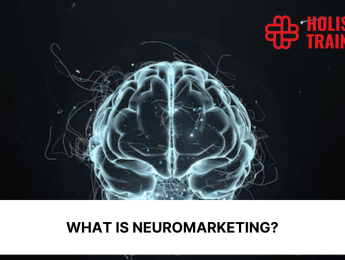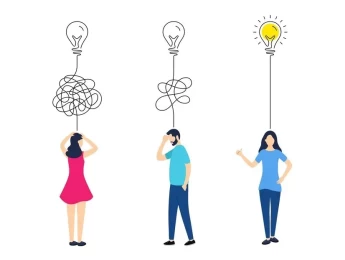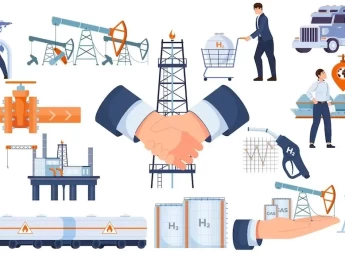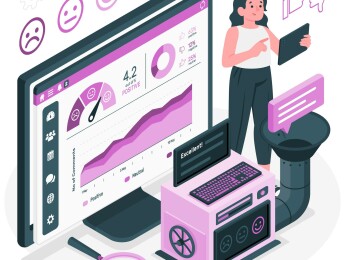- Table of Contents
- Introduction
- Top 10 Predictions for the Future of AI
- 1. Reinforcement Learning and Self-Learning Systems
- 2. AI in Healthcare
- 3. Autonomous Vehicles
- 4. AI and Cybersecurity
- 5. AI and Employment
- 6. Climate Modeling and Prediction
- 7. Energy Optimisation and Efficiency
- 8. Smart Resource Management
- 9. Ethical Considerations
- 10. The Dual Nature of AI
- The Dark Side of AI: Navigating Negative Impacts
- 1. Job Displacement and Economic Inequality
- 2. Bias and Discrimination
- 3. Privacy Concerns
- 4. Loss of Human Control
- 5. Social Isolation and Dependency
- 6. Deepfakes and Misinformation
- 7. Ethical Dilemmas in Autonomous Systems
- Conclusion
Introduction
As we hurtle towards the year 2035, the landscape of our world is evolving at an astonishing pace, driven by the rapid advancements in artificial intelligence (AI). Experts from various fields have weighed in on what lies ahead, presenting a tapestry of predictions that highlight both the immense potential and the grave concerns surrounding AI's trajectory. In this article, we'll delve into the top 10 predictions for the future of AI, drawing insights from two compelling articles that outline the various facets of this technological revolution.
Top 10 Predictions for the Future of AI
1. Reinforcement Learning and Self-Learning Systems
The evolution of AI is on the verge of ushering in a paradigm shift with reinforcement learning leading the charge. This subset of machine learning holds the promise of allowing AI systems not just to process information but to learn from trial and error. Imagine an AI that, akin to human learning, makes mistakes, adjusts its approach, and ultimately improves over time. This self-learning capability can exponentially improve the learning curve of AI systems, making them adept at adapting to dynamic environments. As a result, the potential extends beyond algorithms, with the prospect of self-learning influencing humans, paving the way for a new era of problem-solving and decision-making.
In practical terms, reinforcement learning applications could range from optimising supply chain logistics to enhancing customer service interactions. The prospect of self-improving systems holds the key to more efficient and effective problem-solving, with implications for various industries, including finance, manufacturing, and technology.
Table 1: Reinforcement learning impact
Applications | Advantages | Challenges |
Autonomous Systems | Efficient problem-solving | Potential for unintended behaviour |
Personalised Recommendations | Adaptability to changing scenarios | High computational requirements |
Robotics | Accelerated learning in real-world | Data-intensive training processes |
Gaming | Continuous improvement in gameplay | Ethical concerns in certain contexts |
Financial Trading | Enhanced decision-making capabilities | Interpretability of learned models |
2. AI in Healthcare
The healthcare sector is poised for a monumental transformation as AI takes centre stage. Predictive analytics and machine learning algorithms are set to revolutionise disease diagnosis, treatment personalisation, and overall patient outcomes. Imagine a world where AI systems can analyse vast datasets of patient information, identifying subtle patterns that elude human perception. Such capabilities can lead to earlier and more accurate diagnoses, potentially saving lives.
Moreover, the integration of AI-powered chatbots and virtual assistants in healthcare settings is streamlining administrative processes. These systems can handle appointment scheduling, answer patient queries, and provide medication reminders, thereby enhancing patient engagement and improving overall healthcare accessibility and quality. The implications are profound, with the potential to alleviate the burden on healthcare professionals and make healthcare services more patient-centric.
3. Autonomous Vehicles
The future of transportation is unfolding with the integration of AI technologies like computer vision, deep learning, and sensor fusion. The era of autonomous vehicles is not just a possibility; it's a rapidly approaching reality. These advancements are set to redefine the safety and efficiency standards of self-driving cars, paving the way for their widespread adoption. Picture a world where vehicles can navigate complex traffic scenarios, make split-second decisions, and communicate with each other to optimise traffic flow.
This transformation in transportation holds immense potential for reducing accidents, increasing fuel efficiency, and redefining urban planning. The ripple effects extend beyond personal transportation, influencing sectors such as logistics and delivery services. However, the journey towards fully autonomous vehicles is not without its challenges, including regulatory frameworks, societal acceptance, and the need for robust safety measures.
4. AI and Cybersecurity
As AI becomes increasingly intertwined with our daily lives, the importance of safeguarding digital environments from cyber threats cannot be overstated. AI-driven cybersecurity systems represent a cutting-edge defence against the evolving landscape of cyberattacks. These systems leverage advanced algorithms to detect anomalies, identify potential threats, and neutralise them in real-time.
However, the ongoing battle between defenders and attackers raises concerns about the security of AI systems themselves. The prospect of malicious actors exploiting AI to devise more sophisticated attacks poses a significant challenge. As the cyber arms race intensifies, the need for continuous innovation in AI-driven cybersecurity becomes paramount to ensuring the integrity of digital systems, protecting sensitive information, and preserving user trust.
5. AI and Employment
The impact of AI on the job market has been a subject of intense debate and speculation. While there are concerns about automation leading to job displacement, the flip side reveals a landscape ripe with new opportunities.Experts anticipate that the AI sector will contribute significantly to the generation of job opportunities, projecting a 9% contribution to all upcoming job opportunities in the US by 2025.
This positive outlook is supported by the notion that while AI may automate routine and mundane tasks, it also creates a demand for new roles and skill sets. The emergence of positions such as AI content editors, responsible for ensuring accuracy and context in AI-generated content, exemplifies the transformative potential of AI on employment. The challenge lies in fostering a workforce that can adapt to the evolving job market, emphasising the importance of continuous learning and upskilling.
6. Climate Modeling and Prediction
The power of AI in processing vast amounts of climate data is unlocking new possibilities in climate modelling and prediction. Climate change is one of the most pressing challenges of our time, and AI's ability to analyse intricate patterns in climate data offers a ray of hope. Improved accuracy in forecasting natural disasters, extreme weather events, and long-term climate trends empowers policymakers and communities to make informed decisions.
The implications of AI in climate modelling extend to resource allocation, disaster preparedness, and sustainable urban planning. Governments and organisations can leverage AI insights to implement proactive measures in mitigating the impact of climate change. The convergence of AI and climate science represents a vital step towards creating a more resilient and sustainable future for our planet.
7. Energy Optimisation and Efficiency
The potential of AI to optimise energy consumption and enhance the efficiency of renewable energy systems is a game-changer in the quest for a sustainable energy future. Smart grids, powered by machine learning algorithms, can dynamically balance energy supply and demand, minimising transmission losses and maximising the utilisation of renewable energy sources.
The application of AI in energy optimisation extends to predictive maintenance of infrastructure, demand forecasting, and grid management. By harnessing the power of AI, energy providers can move towards a more responsive and adaptive energy ecosystem. This not only contributes to environmental sustainability but also addresses the growing global demand for energy in a more efficient manner.
8. Smart Resource Management
AI's capabilities in optimising resource allocation and minimising waste hold the key to fostering sustainability across various sectors. From water management to waste reduction, AI-driven systems can predict scarcity, optimise usage, and promote circular economy practices. The ability to analyse data and identify patterns enables proactive decision-making in resource utilisation.
Consider a scenario where AI is employed in agriculture to precisely manage irrigation, reducing water wastage and enhancing crop yields. Similarly, in industrial settings, AI can optimise production processes, minimising resource consumption and waste generation. The integration of AI into smart resource management practices signifies a shift towards responsible and sustainable utilisation of our planet's resources.
9. Ethical Considerations
It’s no surprise that AI is projected to experience a yearly expansion of 37.3% spanning the period from 2023 to 2030, according toForbes. However, as AI's influence grows,ethical considerations become paramount. Privacy, bias, fairness, and accountability are challenges that demand careful attention.
The collaborative efforts of industry leaders, policymakers, and researchers are essential to establish ethical guidelines that protect human rights and ensure responsible AI practices. Striking the right balance between innovation and ethical considerations is crucial for building public trust and ensuring that AI is a force for good.
10. The Dual Nature of AI
As we navigate the AI-driven future, it becomes evident that its impact is inherently dualistic—both beneficial and concerning. Experts express a mix of excitement and apprehension, reflecting the multifaceted nature of AI's potential. The challenge lies in harnessing the benefits while addressing the risks, ensuring that technological progress aligns with human well-being and the preservation of democratic values.
The dual nature of AI invites introspection on the ethical dimensions of its development and deployment. Questions about accountability, transparency, and the potential for unintended consequences prompt a call for responsible AI practices. Striking this delicate balance is essential to ensure that AI evolves as a force that augments human capabilities without compromising fundamental values.
In short, the top 10 predictions for the future of AI paint a vivid picture of a world undergoing unprecedented technological transformation. From healthcare to climate modelling, AI is poised to reshape industries, create new opportunities, and address some of the most pressing challenges facing humanity. However, as we embark on this transformative journey, it is imperative to navigate the path with a keen awareness of the ethical considerations and potential pitfalls that accompany such advancements.
The Dark Side of AI: Navigating Negative Impacts
While the potential of AI to revolutionise our world is undeniable, it's essential to acknowledge the potential negative impacts that could emerge in the near future. As we eagerly embrace AI's capabilities, we must also be prepared to address the challenges and concerns that come along with this technological advancement. Here are some of the potential negative impacts of AI that warrant our attention:
1. Job Displacement and Economic Inequality
One of the most debated concerns surrounding AI is its potential to disrupt job markets. Automation driven by AI has the capacity to lead to the displacement of certain jobs, affecting various industries. While there is optimism about AI creating new job opportunities, the transition might be uneven, leaving certain groups unemployed or underemployed. Ensuring a just transition and providing retraining opportunities are crucial to mitigating the negative economic consequences of AI-driven job displacement.
In addition to this, the geographical impact of job displacement is noteworthy. Certain regions may experience a more significant impact on employment due to the concentration of specific industries. It becomes imperative for policymakers to strategize and implement measures that ensure a balanced distribution of job opportunities across diverse regions, preventing the exacerbation of economic inequalities.
2. Bias and Discrimination
AI systems learn from data, and if that data contains biases, these biases can be perpetuated and amplified. Biassed AI systems could lead to discriminatory outcomes in areas such as hiring, lending, and law enforcement. Addressing bias in AI algorithms requires meticulous data curation, transparent model development, and ongoing evaluation to prevent unintentional discrimination.
Moreover, the responsibility for addressing bias extends to the diversity of AI developers and researchers. A lack of diversity in these fields can inadvertently perpetuate biases, emphasising the need for inclusivity and diverse perspectives in the AI development process. Collaborative efforts between technologists, ethicists, and social scientists are essential to create AI systems that are fair, unbiased, and just.
3. Privacy Concerns
As AI collects and analyses vast amounts of data, concerns about privacy arise. The increasing prevalence of AI-powered surveillance systems, facial recognition, and data mining raises questions about the extent to which individuals' personal information is being monitored and utilised. Striking a balance between the benefits of AI-driven insights and preserving individual privacy rights is a complex challenge.
Emerging technologies like facial recognition have sparked debates about the boundaries between public safety and personal privacy. Governments and organisations must navigate the ethical considerations surrounding data collection, storage, and utilisation. The development of robust data protection laws and ethical guidelines is imperative to safeguard individuals' privacy in an AI-driven world.
4. Loss of Human Control
AI systems that continuously learn and adapt could reach a point where theirdecision-making becomes opaque and difficult to comprehend. This "black-box" effect raises concerns about humans losing control over AI-driven systems, which could make critical decisions with far-reaching consequences without clear human oversight. Ensuring transparency and accountability in AI algorithms is crucial to maintaining human control and ethical decision-making.
The potential loss of human control becomes even more pronounced in critical domains such as healthcare and autonomous vehicles. In healthcare, decisions made by AI algorithms in diagnosis and treatment planning must align with medical ethics and standards. Similarly, in autonomous vehicles, the ability to comprehend and explain AI-driven decisions becomes paramount for ensuring the safety of passengers and pedestrians.
5. Social Isolation and Dependency
As AI-driven technologies become more integrated into our daily lives, there is a risk of increasing social isolation and dependency on digital interactions. AI-powered virtual assistants and chatbots, while convenient, might lead to reduced face-to-face human interactions, potentially impacting mental health and overall well-being.
The proliferation of AI in social interactions poses challenges to the fabric of society. Social skills and emotional intelligence, vital for human relationships, could be overshadowed by the convenience of AI-driven communication. Striking a balance between the efficiency of AI-driven interactions and the importance of genuine human connections becomes essential to prevent a scenario where individuals become socially isolated in a world dominated by artificial intelligence.
6. Deepfakes and Misinformation
AI's ability to generate convincing content can be misused to createdeep fake videos, audio recordings, and texts that spread misinformation. This has implications for journalism, public discourse, and political manipulation. The proliferation of AI-generated fake content could erode trust in information sources and contribute to the spread of falsehoods.
Deepfakes, fueled by AI algorithms, pose a significant threat to the integrity of information. From political figures to celebrities, the potential for malicious actors to create realistic-looking content with false narratives raises ethical and societal concerns. Combating the spread of misinformation requires a multi-faceted approach involving technological countermeasures, media literacy education, and vigilant fact-checking.
7. Ethical Dilemmas in Autonomous Systems
The rise of autonomous systems, such as self-driving cars and AI-powered drones, poses ethical dilemmas. Decisions made by these systems in situations involving human lives raise questions about how these choices should be programmed. Balancing the preservation of human life with algorithmic decisions presents complex ethical challenges.
Ethical considerations in autonomous systems extend beyond basic decision-making to more nuanced scenarios. For example, in a self-driving car, should the algorithm prioritise the safety of the passengers over pedestrians, or vice versa? These dilemmas require a thoughtful and transparent approach to programming ethical guidelines into AI systems, with a focus on prioritising human welfare and minimising harm.
In summary, while the promises of AI are vast and transformative, a thorough understanding of its potential negative impacts is crucial for responsible development and deployment. By addressing these challenges head-on, through collaborative efforts involving technologists, policymakers, ethicists, and the broader society, we can strive to ensure that AI serves humanity positively and ethically.
Conclusion
While the potential benefits of AI are awe-inspiring, we must remain vigilant about the potential negative impacts that can arise if not properly managed. Striking a delicate balance between embracing technological progress and safeguarding our well-being requires a multidisciplinary approach involving technology developers, policymakers, ethicists, and the broader society. By addressing these challenges head-on, we can work towards a future where the positive impacts of AI are maximised, and the negative repercussions are minimised for the benefit of all.
And, as the landscape of AI continues to unfold, equipping yourself with the skills to navigate this transformative technology is paramount. Our course, ‘Artificial Intelligence Innovation,’ provides a unique opportunity to not only understand the intricacies of AI but also to actively contribute to shaping its ethical and positive future. Join us in this educational journey and be at the forefront of driving AI innovation responsibly, ensuring a future where its benefits are maximised, and the drawbacks are minimised for the benefit of all. Enrol now or contact us for more information!


